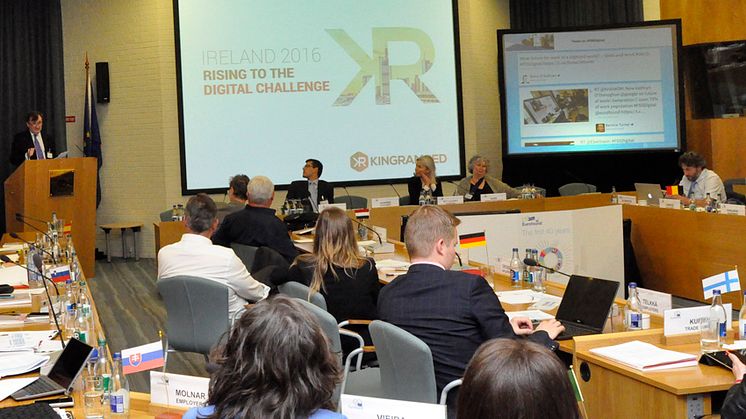
News -
Studying the impact of digitalisation on work
A 2014 study from think-tank Bruegel estimates that over the next 20 years, more than 50% of the EU workforce will have their job partly replaced through automation. Advances in machine learning, artificial intelligence, and mobile robotics are likely to affect low-wage, low-skill sectors that have traditionally been immune from this high-tech automation.
This is the context of change against which Eurofound hosted the first session of its 2016 Foundation Seminar Series (FSS) on 26–27 May at its Dublin premises. Subtitled ‘Building up national agendas for better implementation of digital changes’, the seminar focused on the impact of digitalisation on work, looking at the implications for changing work organisation, skills at work, and employment and working conditions in both public and private sectors.
It brought together representatives of social partners and governments in a highly interactive, workshop-based setting – one conducive to mutual learning and sharing understanding. A key question is the role that social dialogue can play in maximising the benefits of digital and technological change.
The discussions in Session One form the basis for ongoing work on the topic, to be completed in the second session of the seminar, which will take place in Berlin in October.

